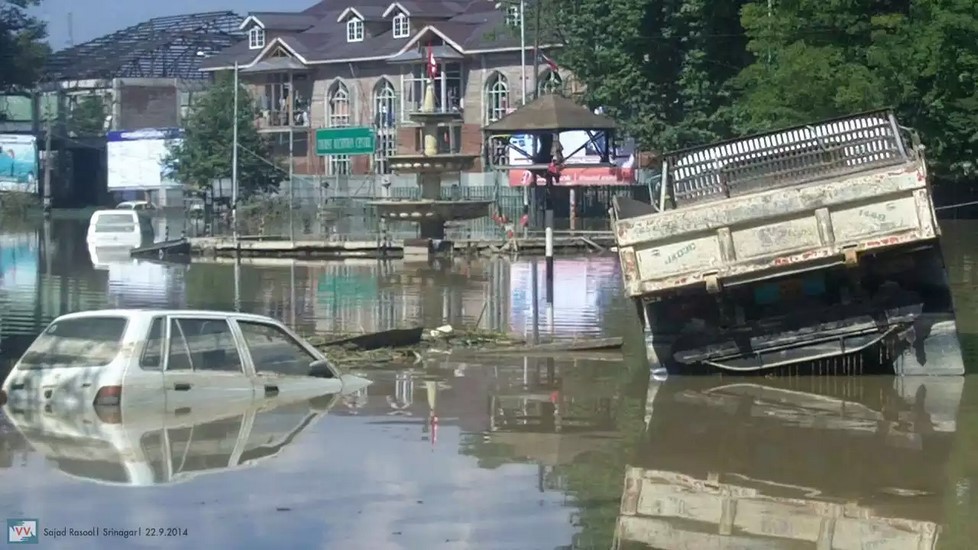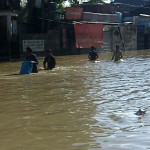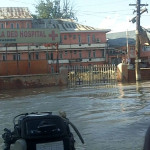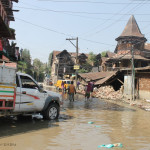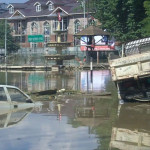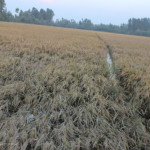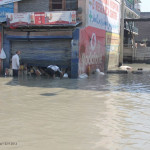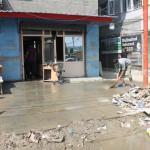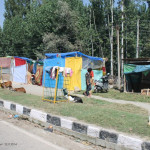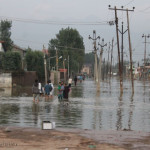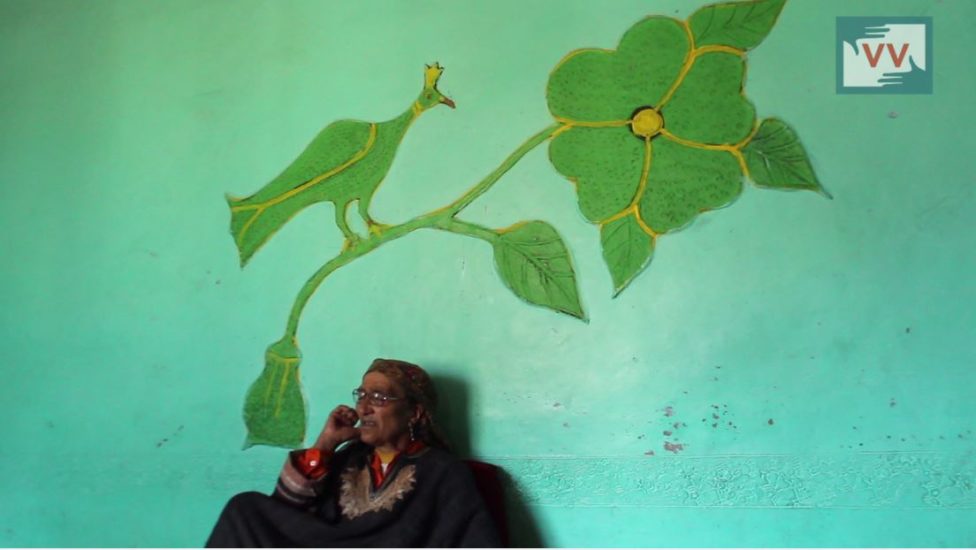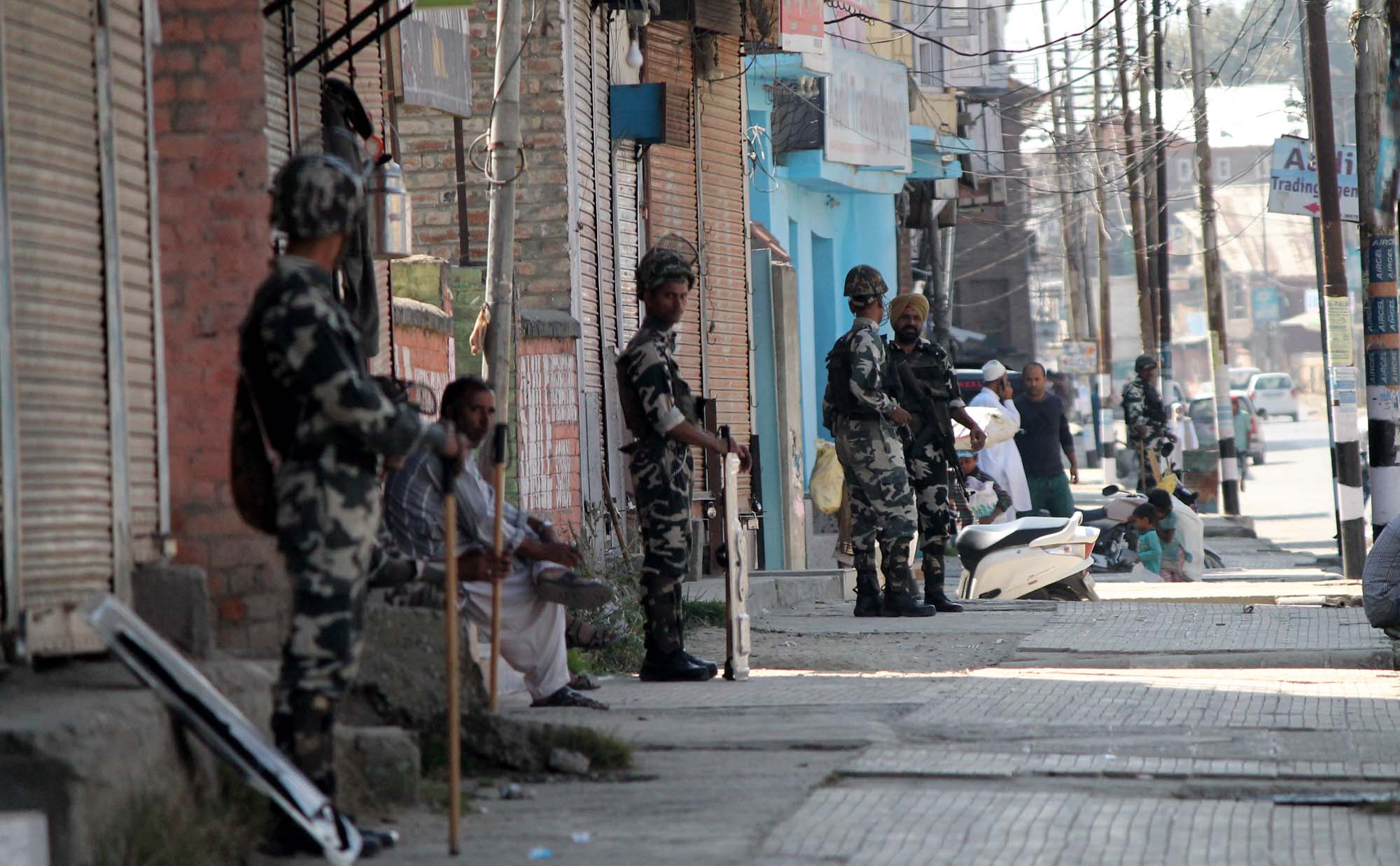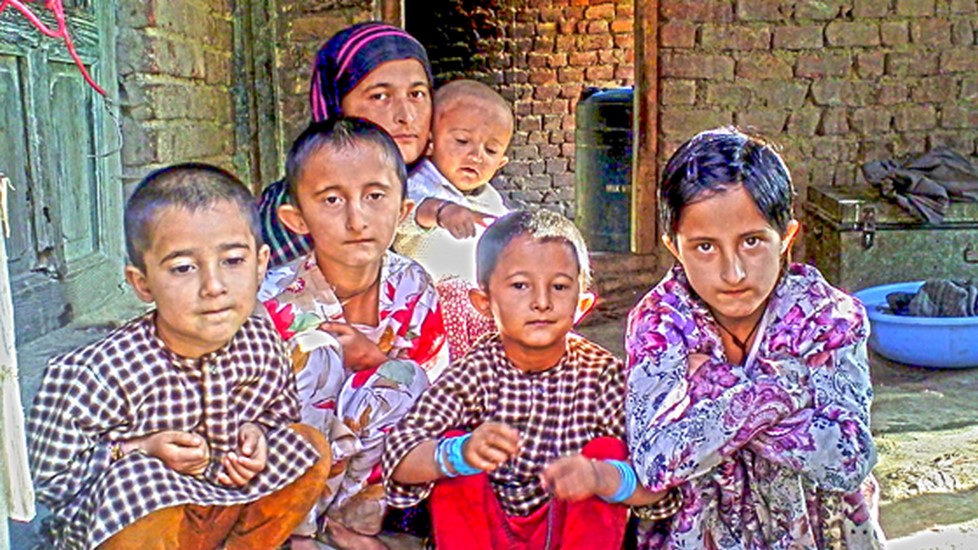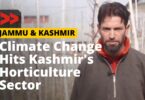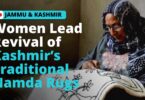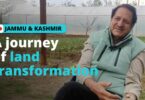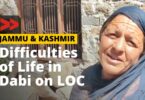It was the closing ceremony of our week-long training workshop on 6th evening. IndiaUnheard had just come to Jammu and Kashmir where 9 new Community Correspondents had been recruited and trained. Our new CCs were excited to begin their work inthe field. Everyone was talking about the flash floods, which had created havoc in the central Kashmir in the last few days. It was about 2 AM and everyone was in his or her bedrooms, settling down after the celebrations of becoming a CC. Suddenly we heard that a red alert was sounded in Lalchowk area, asking people to vacate their houses.
I knocked at the doors of the CCs and asked them to accompany me to the Jhelum Bund and see what the condition was over there. As a few of us headed over, Stalin (Video Volunteers’ Director) along with the remaining CCs started packing up our training equipment and other belongings. At the Jhelum Bund the river was roaring, gushing angrily; the water level had crossed the danger mark. From some places the water was slowly entering Lalchowk, the business hub of Kashmir. Some shopkeepers were taking out their goods from shops; locals were running for their safety. I heard some people saying that the river had already breached some places in Pampore and Sonwar areas. Although rains had already stopped a day before the floods had created chaos in the valley.
It was around 3 am when we came back from Lalchowk. “The situation is worsening”, I told Stalin “We need to get ready to get out of this area as soon as possible.” Stalin gave us tips about rescue and evacuation, how we should stay safe. By 3:30 am we had all our important belongings packed. We decided to wait till morning, as there was no possibility of getting a taxi at that time.
It was 7 am now on the morning of 7th September. There was panic all around, as Jhelum had breached one place in Lalchowk. We left the hotel. I took my motorcycle and went to see what was happening around Lalchowk. I saw fallen Chinar trees, people running here and there, sirens all over. I was stopped by police at Budshah bridge, they were asking me to go back as the Jhelum was flowing towards Civil Secretariat, High Court and Assembly complex(Batmaloo, Jehangir Chowk). I met a lady with her small child in her lap,who was crying for help. She wanted to cross over to Batmaloo to get to the general bus stand, but there was no hope. I asked her to go back and not take a chance.
On my way back to where my colleagues were waiting for me, I saw Lalchowk submerged in about 4 to 5 feet of water. Vehicles were floating. A place, which used to be the hub of business activities, now presented a horrible picture of misery and helplessness. We took a taxi and went to Nigeen guesthouse, and on the way I saw people carrying boats for rescue operations. We found the guesthouse locked. All the hotel staff had already left so the guesthouse owner, Mir Sahib, who lived nearby, came and opened it. We had eaten nothing till then so he made ‘Kehwa’ for us.
Stalin and I went on my motorcycle to the old town of Srinagar, located on the banks of Jhelum river, to see if any help is required in rescue operations. People were running everywhere and there was mayhem and confusion all around. At some places bridges were declared unsafe and people were still taking risks and crossing the river. My bike was running out of fuel. We went to Dalgate where the water from Jhelum was diverted into Dal Lake. Gas cylinders, bedding, roofs of houses were floating in the Lake, which is usually the epitome of picture-postcard beauty.
We turned back and found that there was no petrol at fuel pumps. The water level on Dal and Nigeen Lakes was increasing rapidly. At around 4pm the mobile network went dead too. We had lost communication with the rest of the world now. It was going from bad to worse.
Next morning the lawn of our guesthouse was under water. Locals were leaving their homes in Nigeen as water had entered up to the first
floors. We also packed up and handed over the keys to Mir sahib. I had talked to my friend Farooq a day before; he hadasked me to come to his home and bring my colleagues in case of an emergency.I decided to go there. He lives in a village called Dara inthe lap of Zabarwan Mountains.
We hired a taxi to take us to Dara village. As we drove through beautiful hilly terrain, we had a clear view of Dal Lake. Although from a distance it reflected a calm view, we knew the catastrophe unfolding below on people who lived there. Most of the people were running towards hilly areas.
Once we reached Dara village, we saw dozens of people preparing for relief work, collecting fruits, vegetables, rice and other eatables
for the people who were affected downhill in Srinagar. There was a sense and feeling of oneness and sympathy. We were welcomed with open hearts by the locals, and were taken to my friend and colleague Dr.Fayaz’s home. Doctor had recently constructed asingle storey house, yet to be completed.
All of us were in a horrific mood but Doctor’s daughter, who is in the 1st standard, lightened the mood by posing critical questions to all of us. The precocious little girl was very frank and friendly with us guests, who were in some way ‘flood sufferers’. We used to have lunch at my friend Farooq’s home. Farooq has recently lost his wife. He has two children; a boy and girl, who are very intelligent and brave like their father.
We were still more or less disconnected to the rest of the world. We crossed over to a hill and we received signal on our cell phones, which gave us the chance to connect with our family and friends. Next day, some of my new CC colleagues from Baramulla and Kupwara, Yaseen, Azhar and Aabid, decided to leave via Gandabal-Bandipora road which passes through hilly areas.
Four people were left in Dara now: Stalin, Shafat, Zuhaib and myself. We spent almost four days at Dara. Everyday villagers cooked meals, collected other eatables and went to relief camps in Sonwar and other areas of Srinagar. The people of Dara were a real example of bravery and empathy. The locals gave us due regard and respect in every sense, while we stayed there. I have fallen in love with the people of Dara.
On 12th September two of my colleagues, Stalin and Zuhaib left. Stalin went by truck to the air base where evacuations were taking place. Through several strokes of luck he was airlifted by the Air force to Chandigarh. Next day Shafat and I walked all along from Brain Nishat to Srinagar and witnessed the destruction all over. I saw thousands of non-locals waiting for their turn at evacuation centres. I spent the night in Srinagar (Rawalpora). Next day I managed to get home.
Nowadays I have been volunteering and coordinating with organizations in relief work. While doing this, I see the failures of Government at every front, be it rescue, relief or de-watering. I feel the focus of a majority of relief organizations is on Srinagar. Whatabout the rural areas of South Kashmir and North, which are equally hit byfloods? People have lost everything in areas like Bonyar Uri due to flash floods. Government machinery is yet to reach the people living even in Srinagar, which is the capital city, there seems to be no question of reaching rural Kashmir yet…
In the early days of the floods, major state hospitals were flooded and there was no rescue conducted by state at that time. Instead local activists saved thousands of lives. Even now, during relief operations, I see no Government machinery and mostly, locals, NGOs and volunteers are carrying out this process. Carcasses are floating on water in Bemina area till now; no disinfectants are being sprayed; locals are cleaning hospitals. I think a major epidemic will break out in coming days. I had a chance to visit a relief camp in Pattan area, and found that a majority of children are suffering from skin allergies and cold. I went to Awantiporain Pulwama where major crop fields have been completely destroyed.
I am yet to understand the style of governance and disaster management that has been opted for by administration. There was not a single boat either with Flood control or Disaster Management departments. Srinagar had been declared as flood prone area decades ago, then why has our Government not prepared in time for such a situation?

